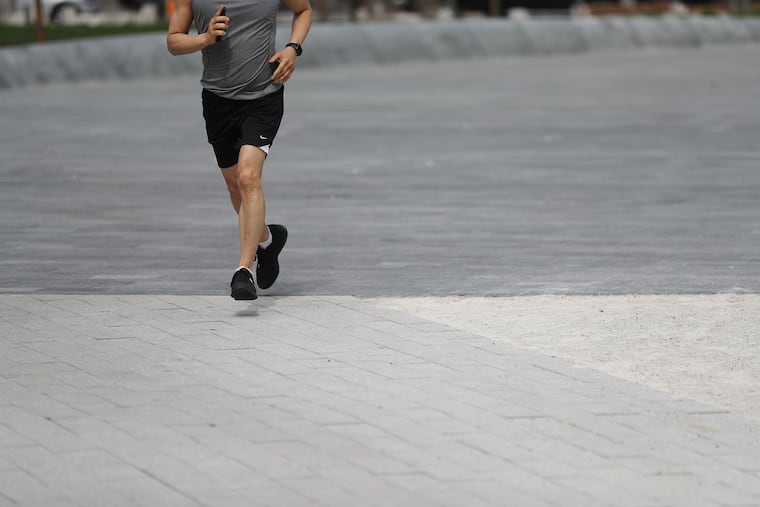The best way to get someone to exercise? Pay them, says new Penn study
Wearable step counters like Fitbits and Apple Watches don't promote healthy exercise in people at high risk for heart attacks. But modest financial incentives can change that.

Do wearable step counters such as Fitbits and Apple Watches promote healthy exercise in people at high risk for heart attacks?
No, says a new study out of the University of Pennsylvania. But modest financial incentives can change that.
In the study, physicians at Penn and the Icahn School of Medicine in New York used wearable step counters, exercise goals and $14-a-week payments to promote walking among people with heart disease, the leading cause of death in the U.S.
According to the American Heart Association, regular exercise cuts the risk of heart attacks and other cardiovascular events by up to 30 percent among those with heart disease. But most patients fail to exercise enough on their own. The Penn Medicine Nudge Unit has conducted a series of experiments in recent years aimed at applying insights from behavioral economics and psychology to motivate healthy behavior.
>> READ MORE: Rehab after heart attack: How Penn's Nudge Unit makes sure it happens
"There are so many reasons why patients don't end up in [exercise] programs," said Neel P. Chokshi, cardiologist and lead author of the study. "Motivation is a big piece of it and access to facilities is another."
The study, published this week in the Journal of the American Heart Association, sought to address both of these obstacles to exercise. Motivation came in the form of weekly paychecks. Facilities came in the form of wrist-worn step counters.
A pool of 105 subjects (mostly older men) was issued wearables and split into two groups. The control group received no payments and showed no significant change in activity as measured by daily step counts over the six-month trial.
The experimental group received "loss-framed incentives" — money doled out each week, unless step goals weren't being met. Every missed day cost participants $2 of their allotted funds.
On average, participants in the paid group — who got an average of $104 each — walked 100 miles more during the trial than those in the control group. "That's a tremendous amount [of exercise] for something that didn't cost a lot," said senior author Mitesh S. Patel, an internist and behavior economist who helped design the payment plan.
The experimental group averaged 1,368 more steps daily than their unpaid peers.
At the four-month mark, checks stopped coming but the same group still maintained a 1,154-step-per-day lead.
"We were pleasantly surprised," said Patel. "To our knowledge, this is one of the first trials using financial incentives where we able to build lasting habits that sustained after the financial incentives turned off."
Why $2 a day? "On a national level, 85 percent of large employers offer financial incentives for health promotion," said Patel. "Many people don't even know about it, but you can go to your employer or your insurance company and you can get a financial incentive for doing things like being physically active. The national average for that is about $750 per year, which is about $2 a day."
Patel also believes $2 a day may be sufficient to avoid the "peanuts effect," a tendency to dismiss rewards deemed too small.
Does an extra 1,000 steps per day matter for heart health? "It remains to be seen," said Chokshi.
"The next set of studies that needs to be done is to assess not only step counts but also clinical outcomes, looking at whether patients have fewer heart attacks or lower rates of stents in the future," he said.
If financial payments are linked to exercise, patients may cheat. Tumbling step counters in the dryer, for example, could produce exaggerated daily step counts. The research team anticipated this.
"We noticed one person who had exceedingly high step counts — 25,000 to 40,000 steps a day," said Patel. "We called them to say, 'Hey what's going on? What have you been up to?'"
The man reported he was walking every day for 20 to 40 minutes and confessed no other activity that indicated he was trying to fool the researchers.
But he also revealed that he had recently joined a band — as a drummer. "He would practice pretty rigorously," said Chokshi.